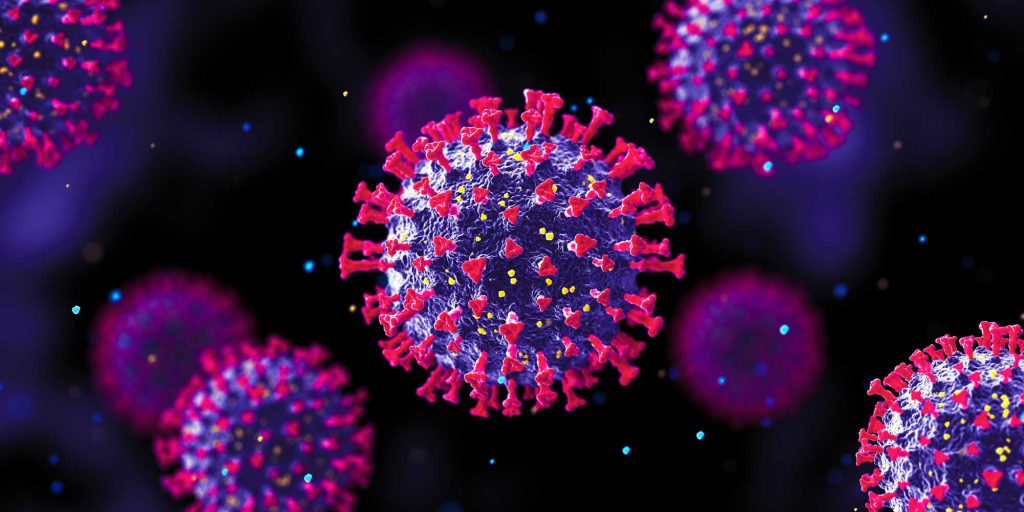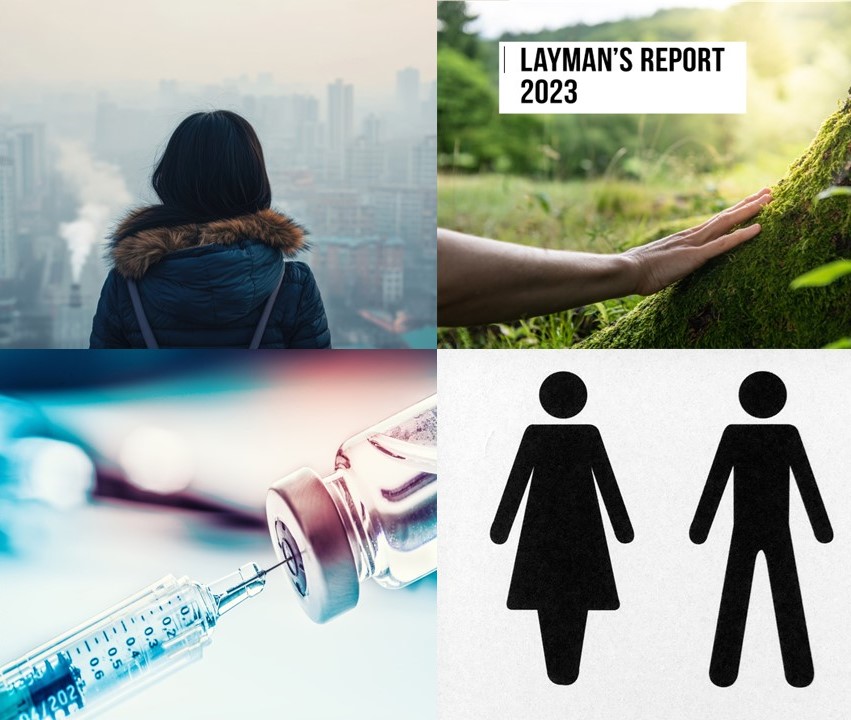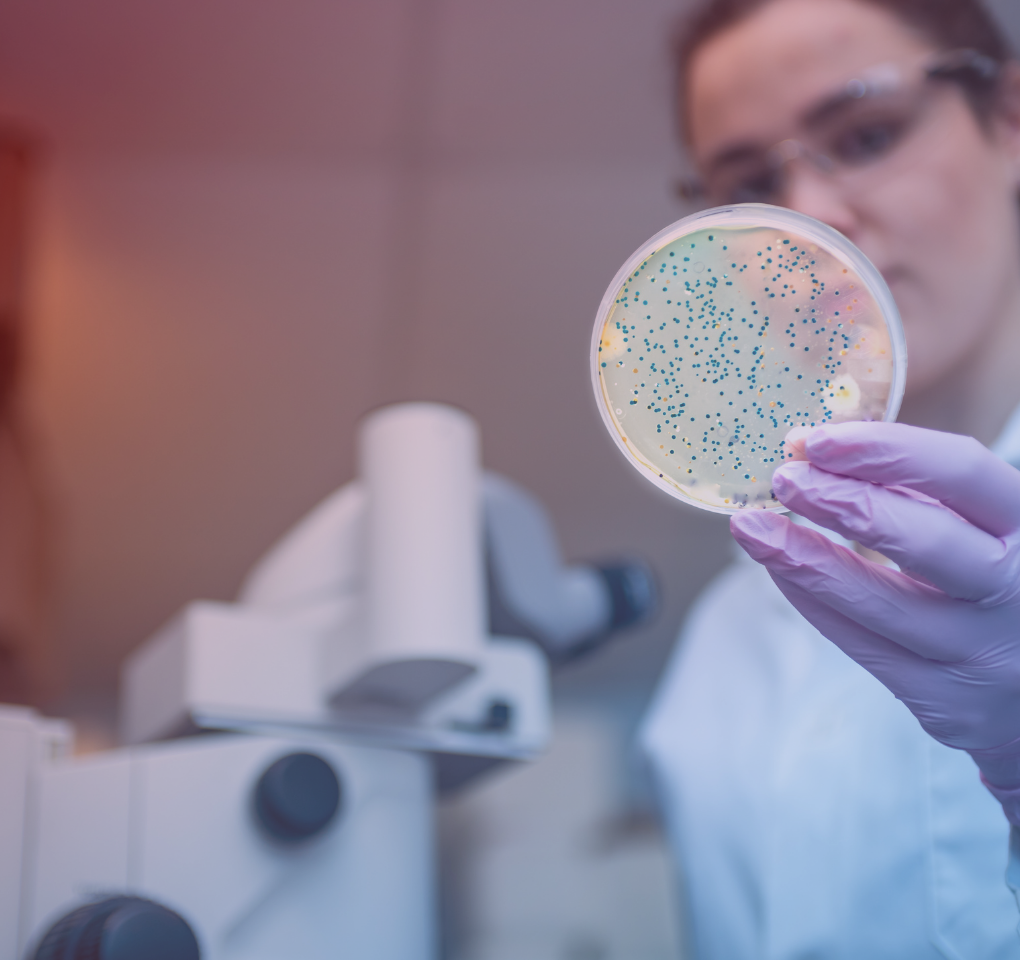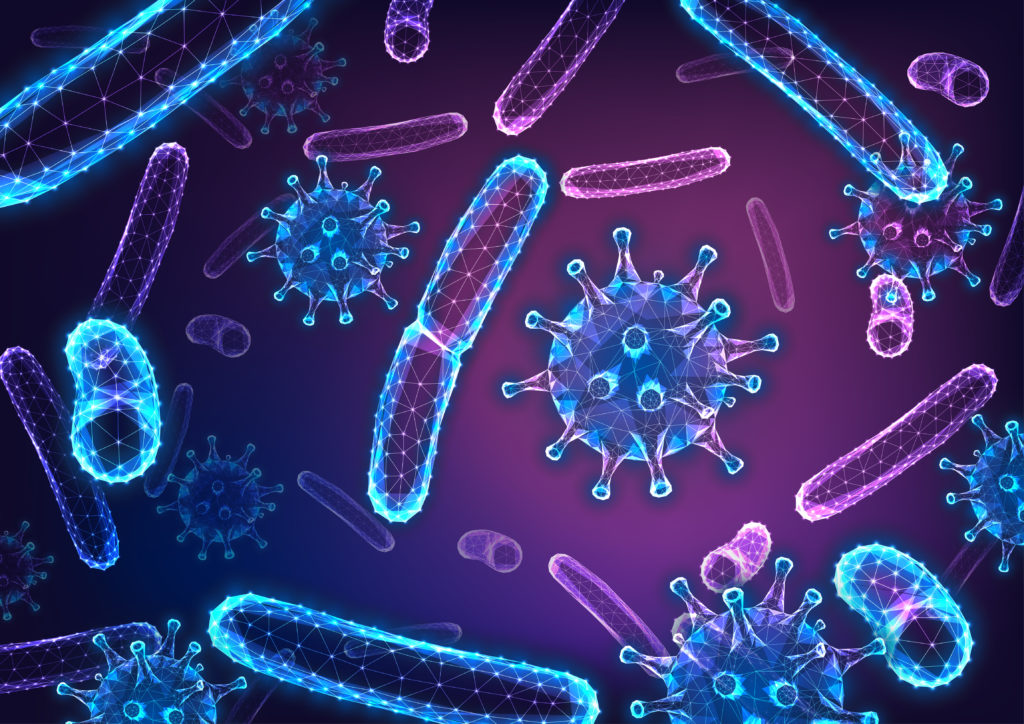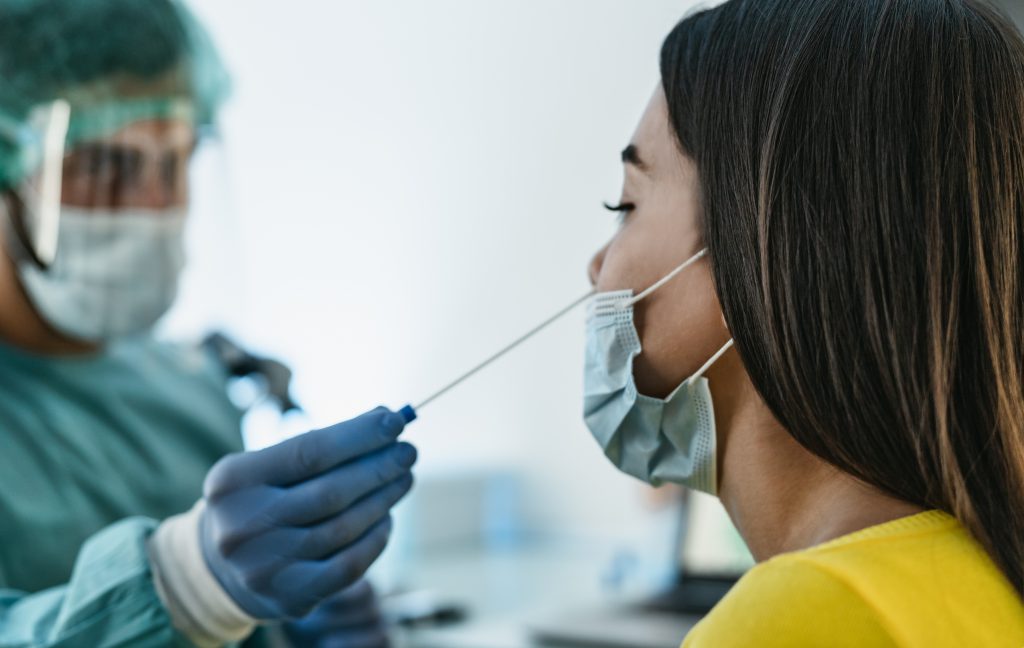Shifts in human gut microbiome due to COVID-19
08 March 2023
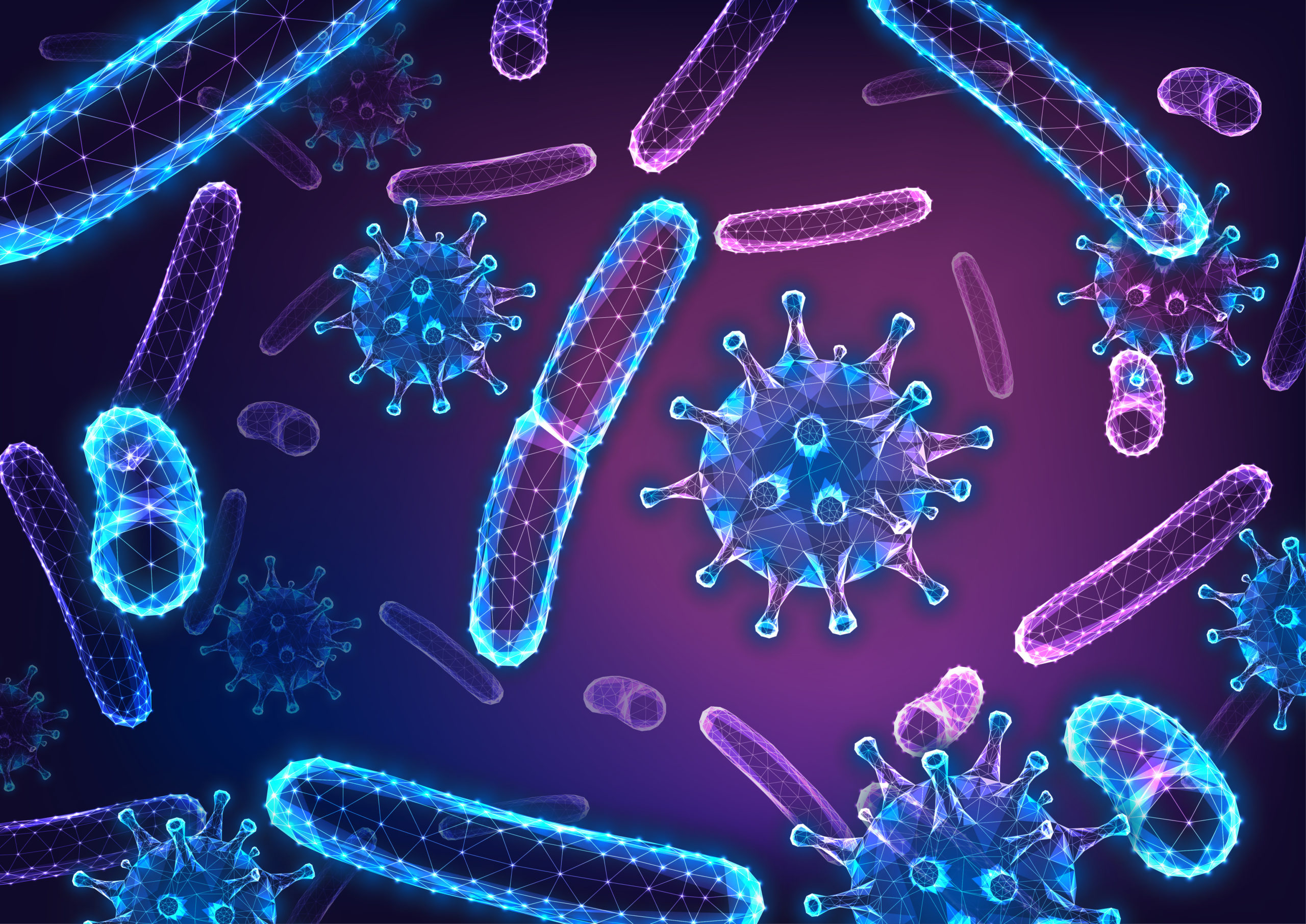
Gastrointestinal effects of COVID-19
Many COVID-19 infected patients reported gastrointestinal symptoms. Research Luxembourg teams investigated the impact of mild-to moderate COVID-19 on the compositions and functionalities of the gut microbiome. Their results show an increased infective competence in the microbiome of COVID-19 individuals.
COVID-19, caused by an infection with the SARS-CoV-2 virus, was declared a global pandemic by the World Health Organisation (WHO) in March 2020. While some people developed severe illness and required medical care, many people reported only mild-to-moderate symptoms, if any at all.
However, many of the infected individuals have experienced persisting symptoms or frequent other infections months after the initial infection even if they weren’t much impacted by the disease to begin with. Particularly with the emergence of new variants, many patients also reported gastrointestinal symptoms.
Researchers from the University’s Luxembourg Centre for Systems Biomedicine (LCSB) and the Luxembourg Institute of Health (LIH) investigated the impact of mild-to moderate COVID-19 on the compositions and functionalities of the gut microbiome. Their results show an increased infective competence in the microbiome of COVID-19 individuals and these have recently been published in the scientific journal Microbiome.
Impact on the gut microbiome’s infective competence
Severe SARS-CoV-2 infections were found to be associated with alterations to the gut microbiome which may persist for at least six months after the initial infection [1]. Imbalances in the gut microbiome may also be a predisposing factor to bacterial, viral, or fungal co-infections.
Intensive research during the past three years has revealed important mechanisms of the disease overall. However, the gut microbiome had so far only been investigated in severe COVID-19 cases. Together with colleagues from the Luxembourg Institute of Health, we wanted to understand if microbiome alterations are unique to severe disease or a common effect of COVID-19 and whether they could play a role in the long-term effects that many patients experience.
Prof. Paul Wilmes, head of the Systems Ecology group at the University of Luxembourg and senior author of the study
The researchers analysed stool samples obtained from individuals with mild-to-moderate COVID-19 and healthy control subjects of Luxembourg’s Predi-COVID and CON-VINCE cohort studies, respectively. The researchers found that there was no significant difference between the patients and healthy individuals in the overall composition of microbial taxa. This suggests that asymptomatic-to-moderate disease likely does not lead to significant changes in the structure of the human gut microbiome.
However, patients with asymptomatic-to-moderate COVID-19 showed an altered infective competence.
We found an increased abundance and expression of virulence factors in COVID-19 individuals. These are factors that help bacteria to invade and colonise the host. In addition, we saw an increased abundance and expression of antimicrobial resistance genes which determine bacterial resistance to antibiotics in patients.
Dr Laura de Nies, co-first author of the study
The significant association between abundances and expression of virulence factors and antimicrobial resistance genes in individuals with COVID-19 indicates an increased capacity for infection within the gut microbiome. In this context two commensal families (Acidaminococcaceae and Erysipelatoclostridiaceae) had significantly higher prevalence in COVID-19 compared to healthy individuals suggesting that SARS-CoV-2 infection may switch their behaviour from protective to potentially harmful for the host. In addition to the changes of bacterial composition, the study also showed an increased abundance and expression of betaherpesvirus and rotavirus C genes in people with COVID-19. Additional follow-up studies are needed to elucidate if gastrointestinal symptoms are caused by the SARS-CoV-2, altered infective competence and/or co-infections with other viruses.
“Our study indicates that COVID-19’s influence on the infective competence of the gut microbiome may lead to a higher likelihood for other infections,” concludes Paul Wilmes. He is confident that this study paves the way for future research that may use these findings to track and unravel potential links to longer-term effects of COVID-19 and to study whether changes in infective competence are a common feature of viral and bacterial infections.
This study has been conducted as a collaborative effort within Research Luxembourg supported by the Luxembourg National Research Fund (FNR), the Ministry of Higher Education and Research, and the Fondation André Losch.
It is based on the following COVID-19 cohort studies in Luxembourg:
- Predi-COVID, led by the Luxembourg Institute of Health, involves COVID-19 positive participants in Luxembourg to identify biomarkers and risk factors associated with severity and long-term consequences of COVID-19.
- CON-VINCE is a national study led by the Luxembourg Institute of Health and the Luxembourg Centre for Systems Biomedicine of the University of Luxembourg that aimed to evaluate dynamics of the spread of the COVID-19 within the Luxembourg population.
Publication
Altered infective competence of the human gut microbiome in COVID-19. Microbiome
Laura de Nies, Valentina Galata, Camille Martin-Gallausiaux, Milena Despotovic, Susheel Bhanu Busi, Chantal J. Snoeck, Lea Delacour, Deepthi Poornima Budagavi, Cédric Christian Laczny, Janine Habier, Paula-Cristina Lupu, Rashi Halder, Joëlle V. Fritz, Taina Marques, Estelle Sandt, Marc Paul O’Sullivan, Soumyabrata Ghosh, Venkata Satagopam, CON-VINCE Consortium, Rejko Krüger, Guy Fagherazzi, Markus Ollert, Feng Q. Hefeng, Patrick May and Paul Wilmes.
[1] Chen Y, Gu S, Chen Y, Lu H, Shi D, Guo J, Wu W-R, Yang Y, Li Y, Xu K-J, et al.: Six-month follow-up of gut microbiota richness in patients with COVID-19. Gut 2022, 71:222–225.

